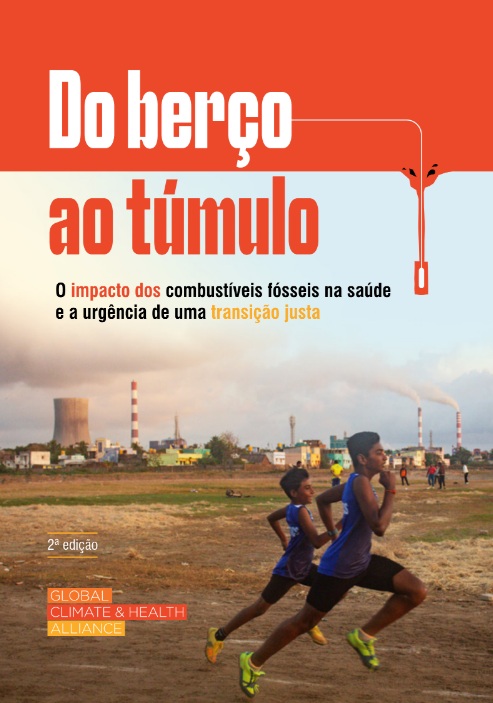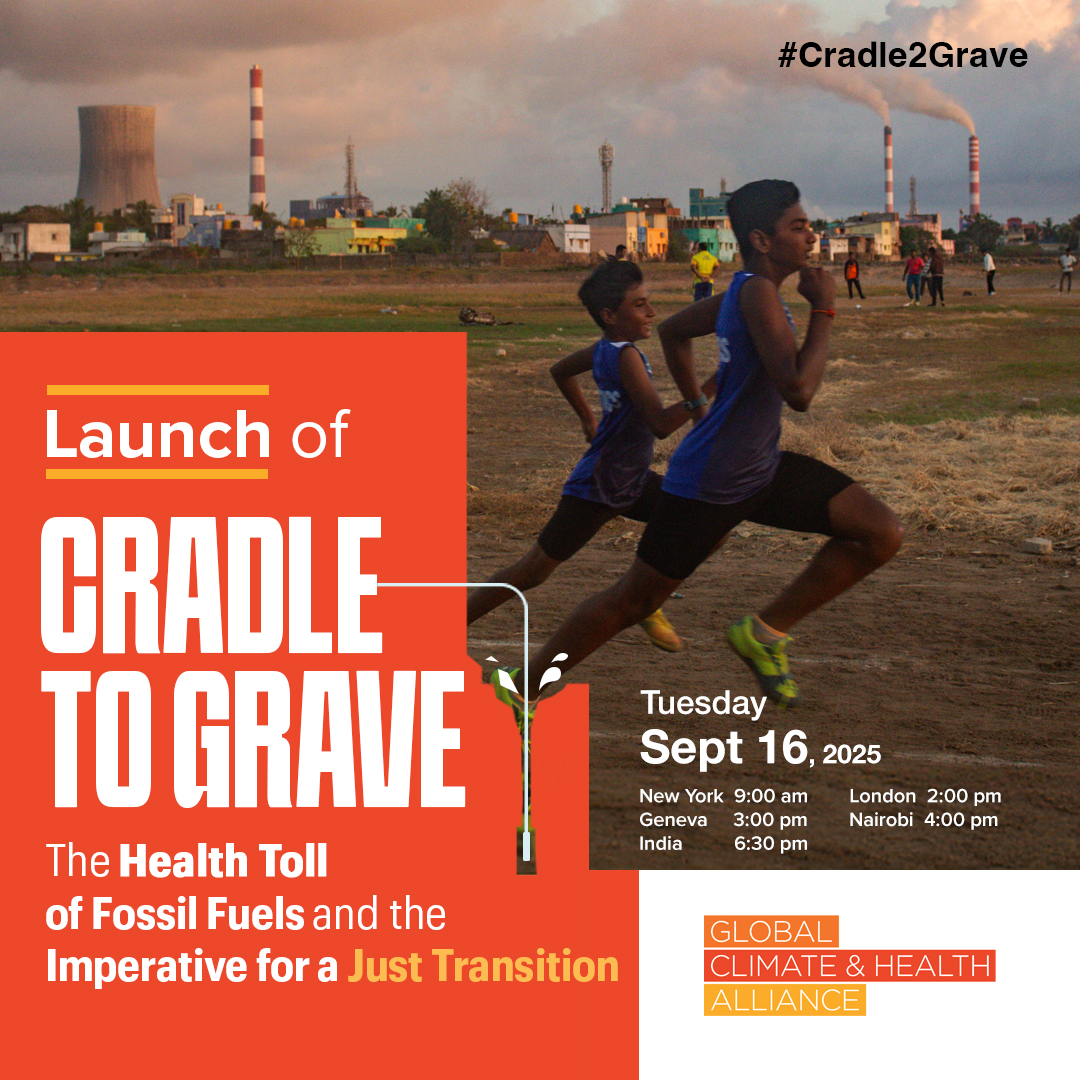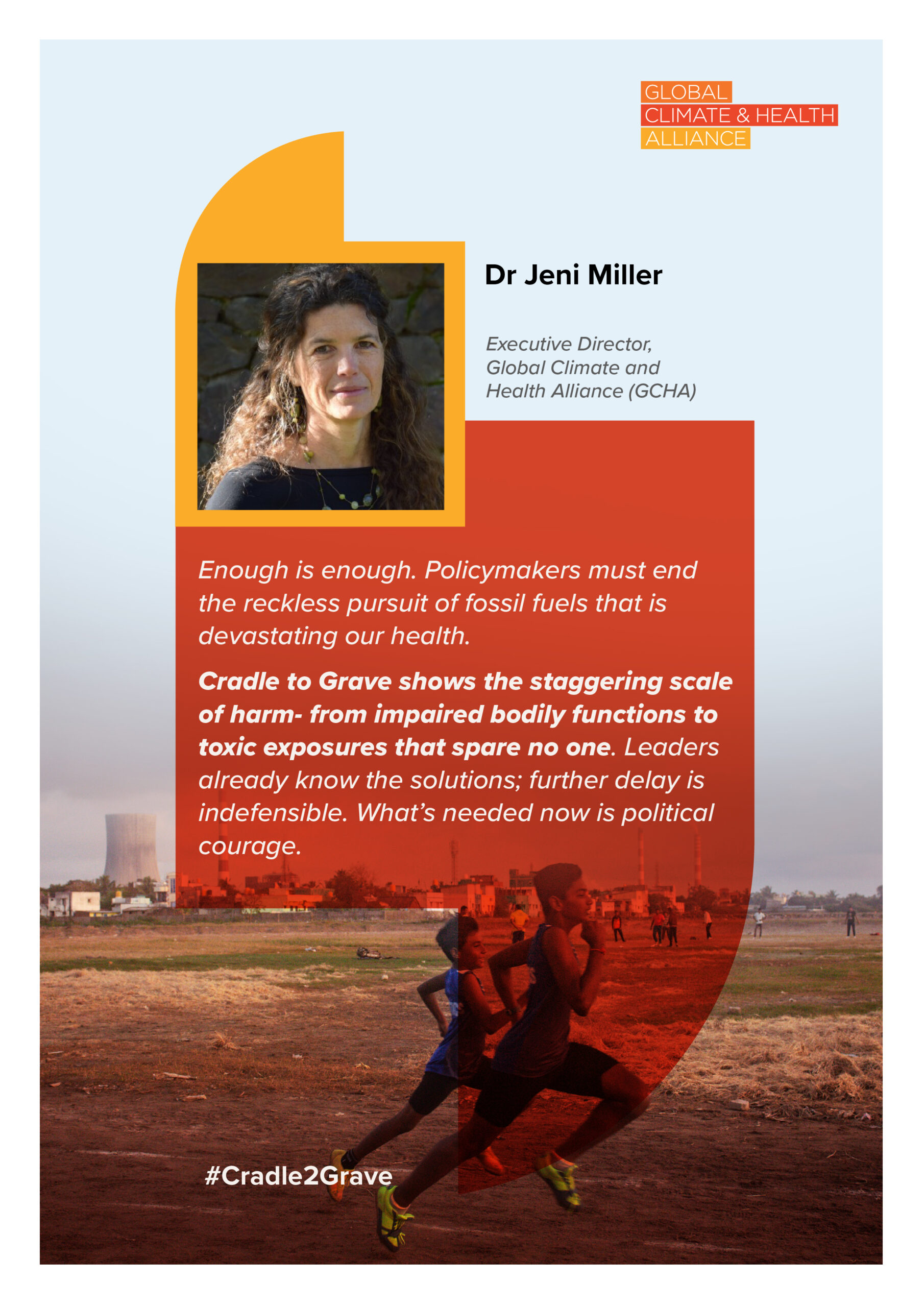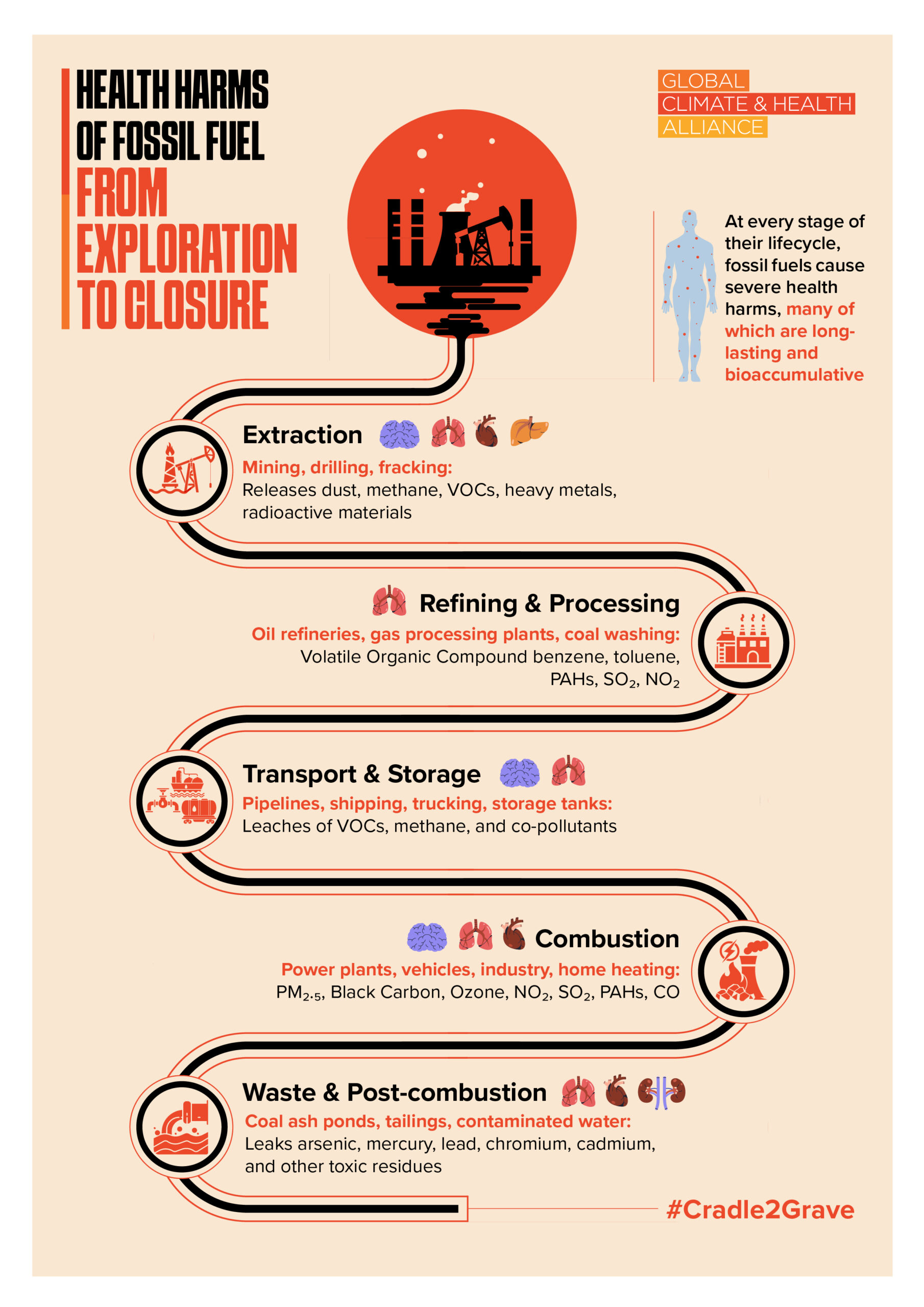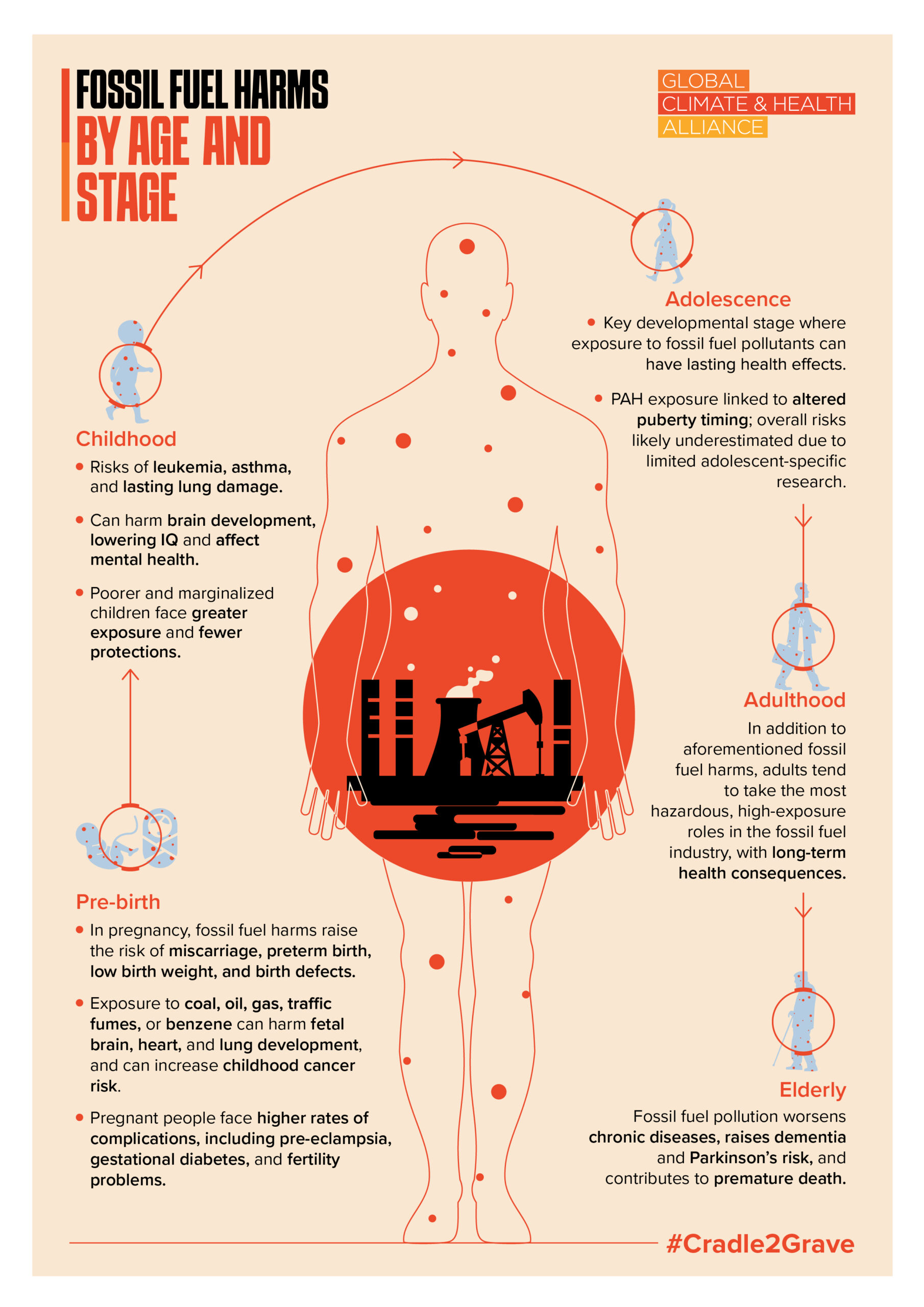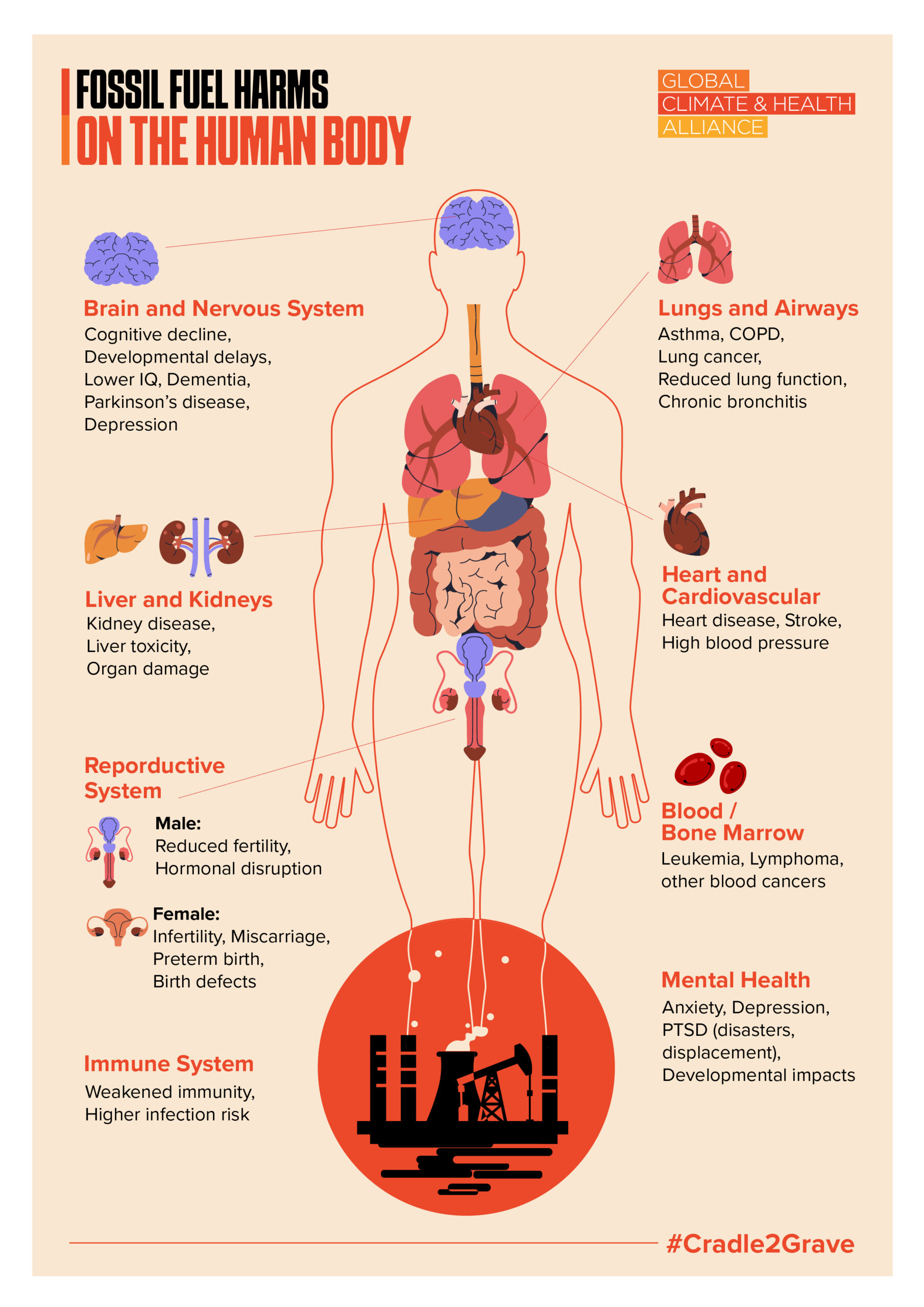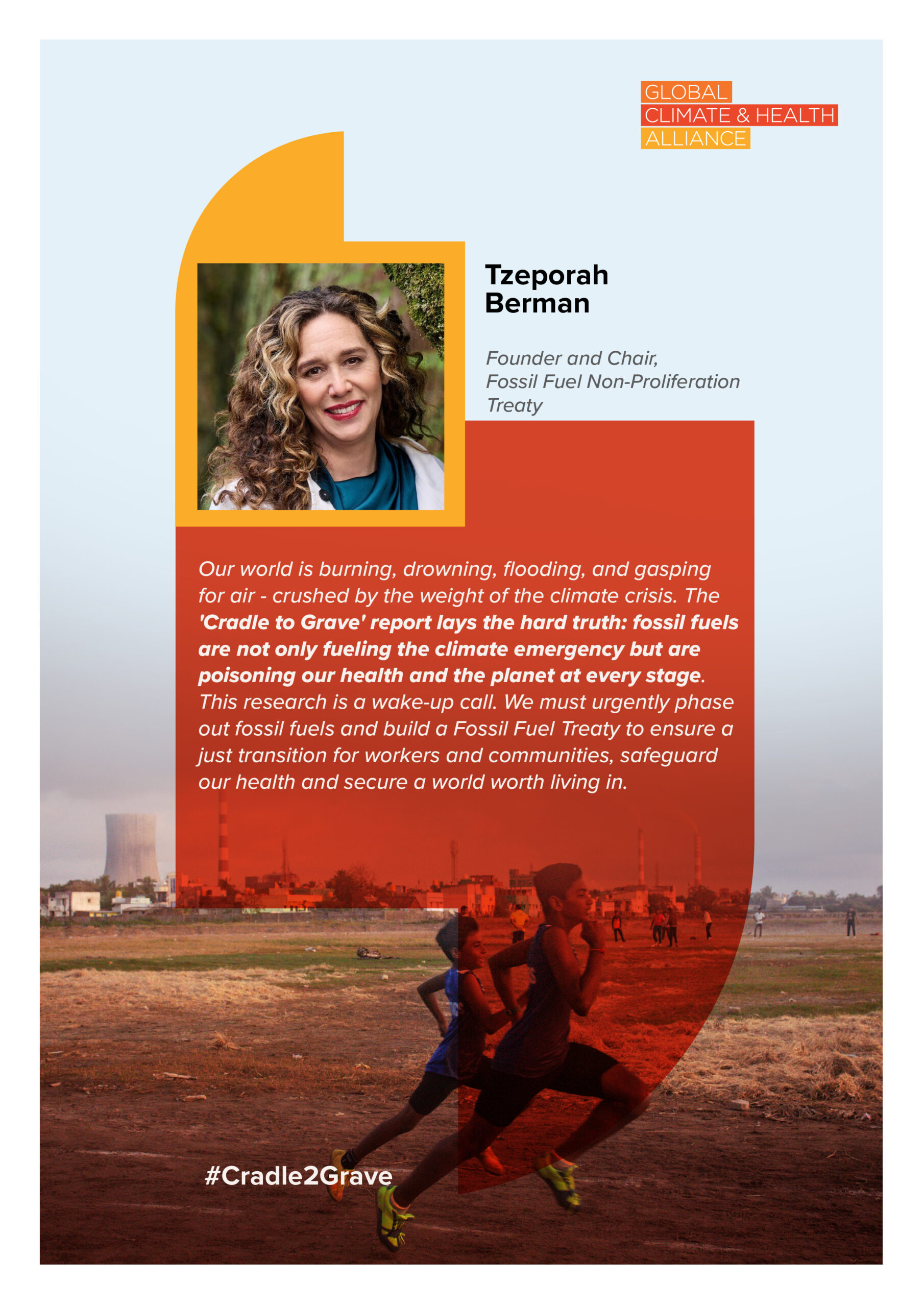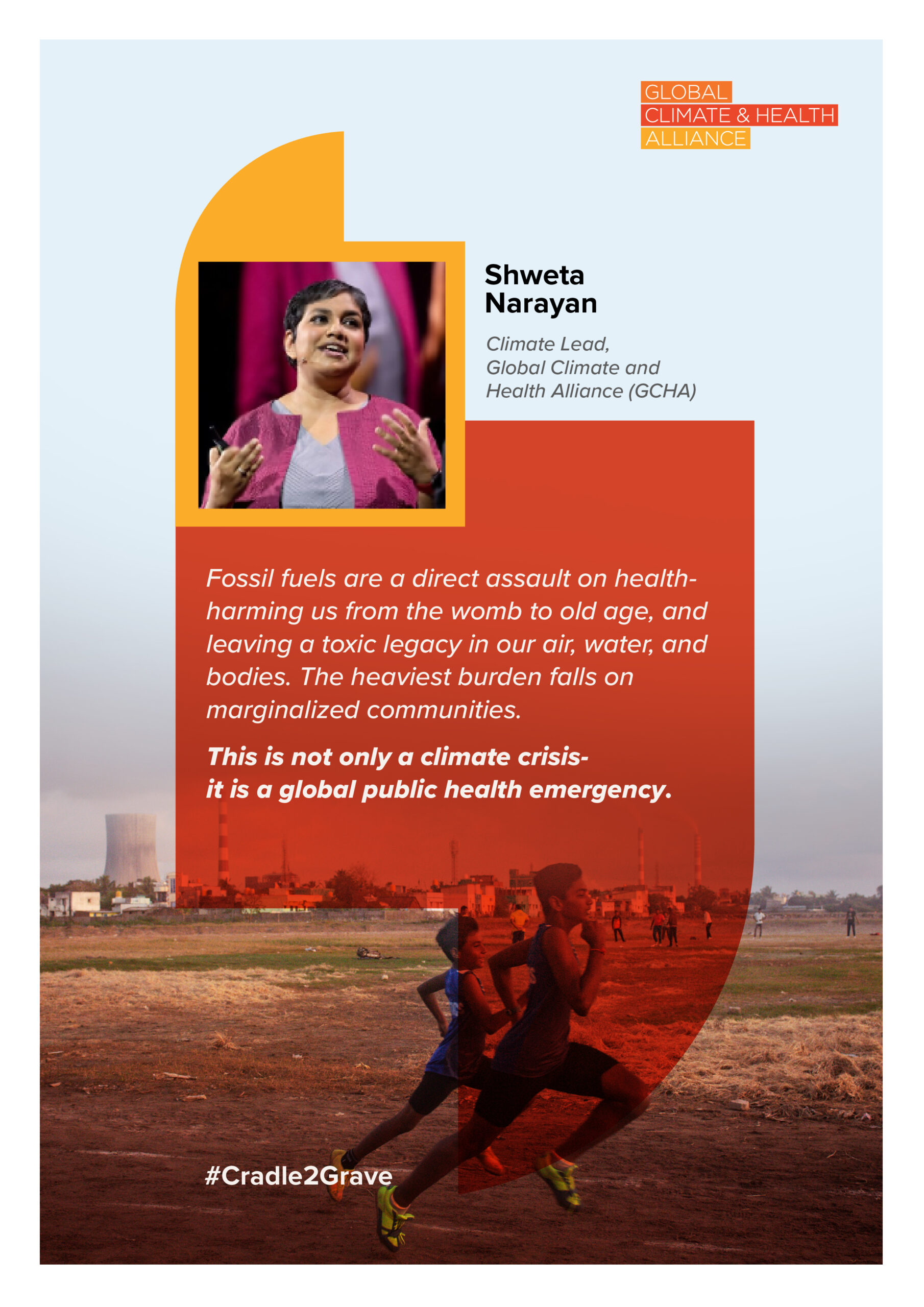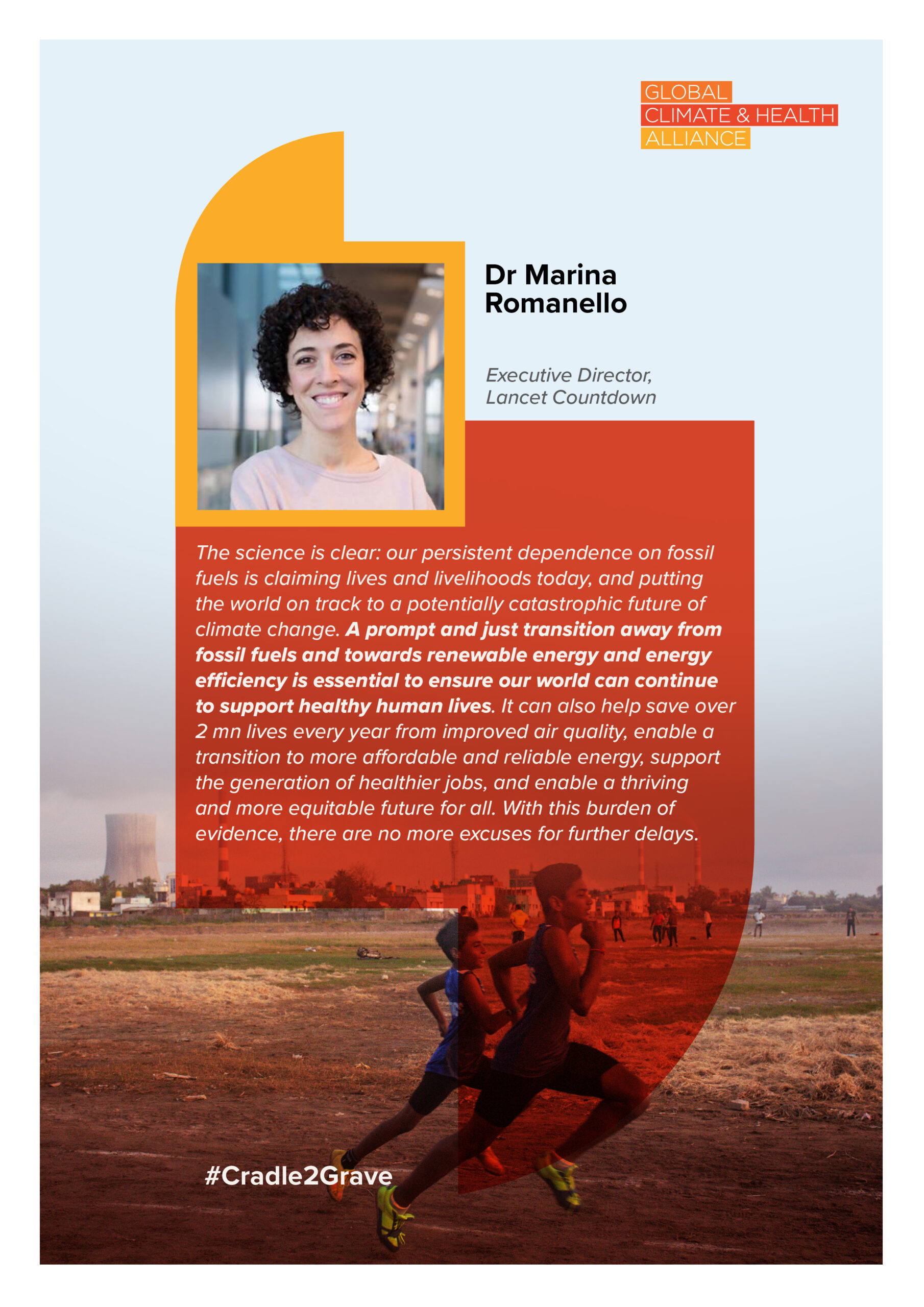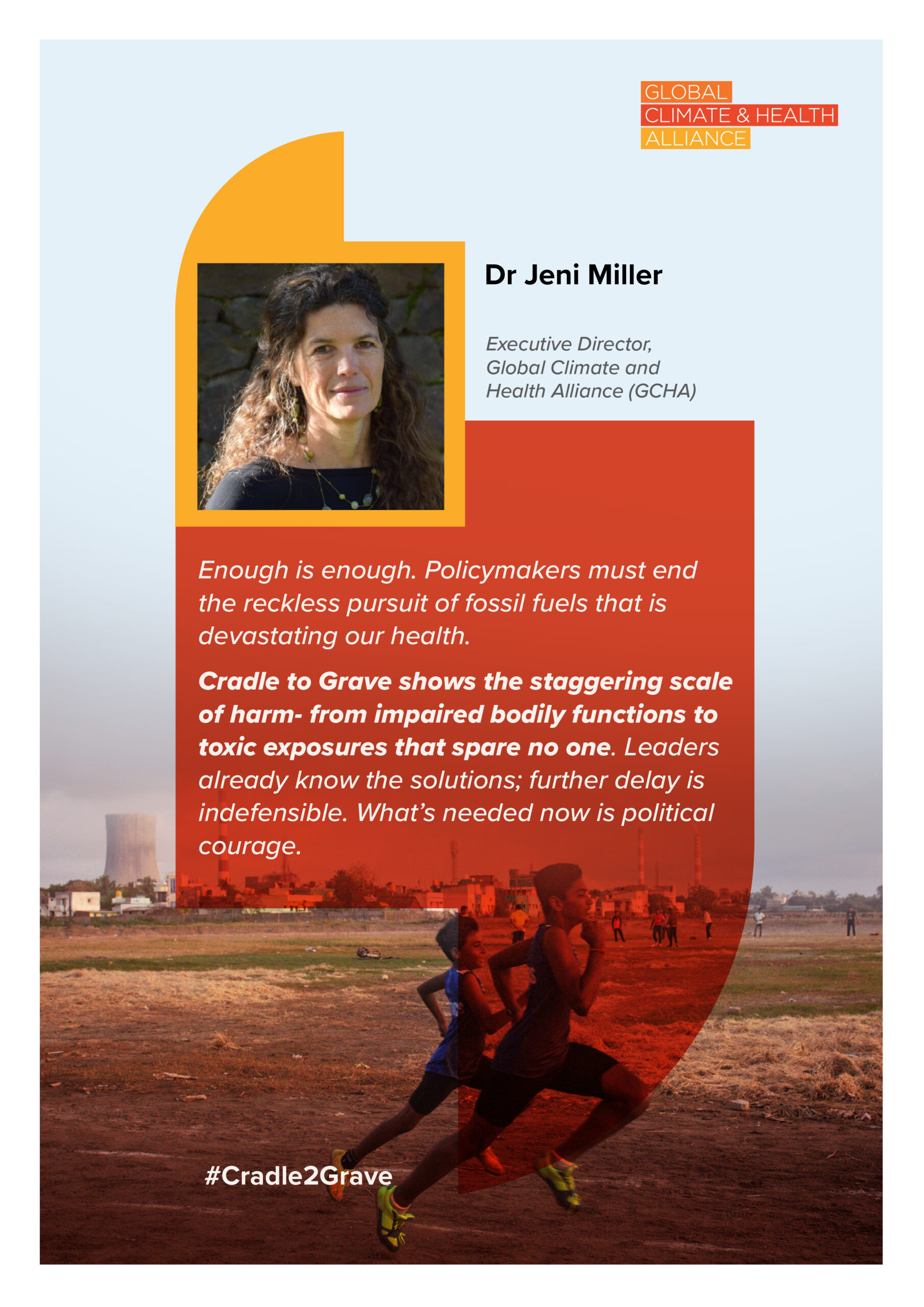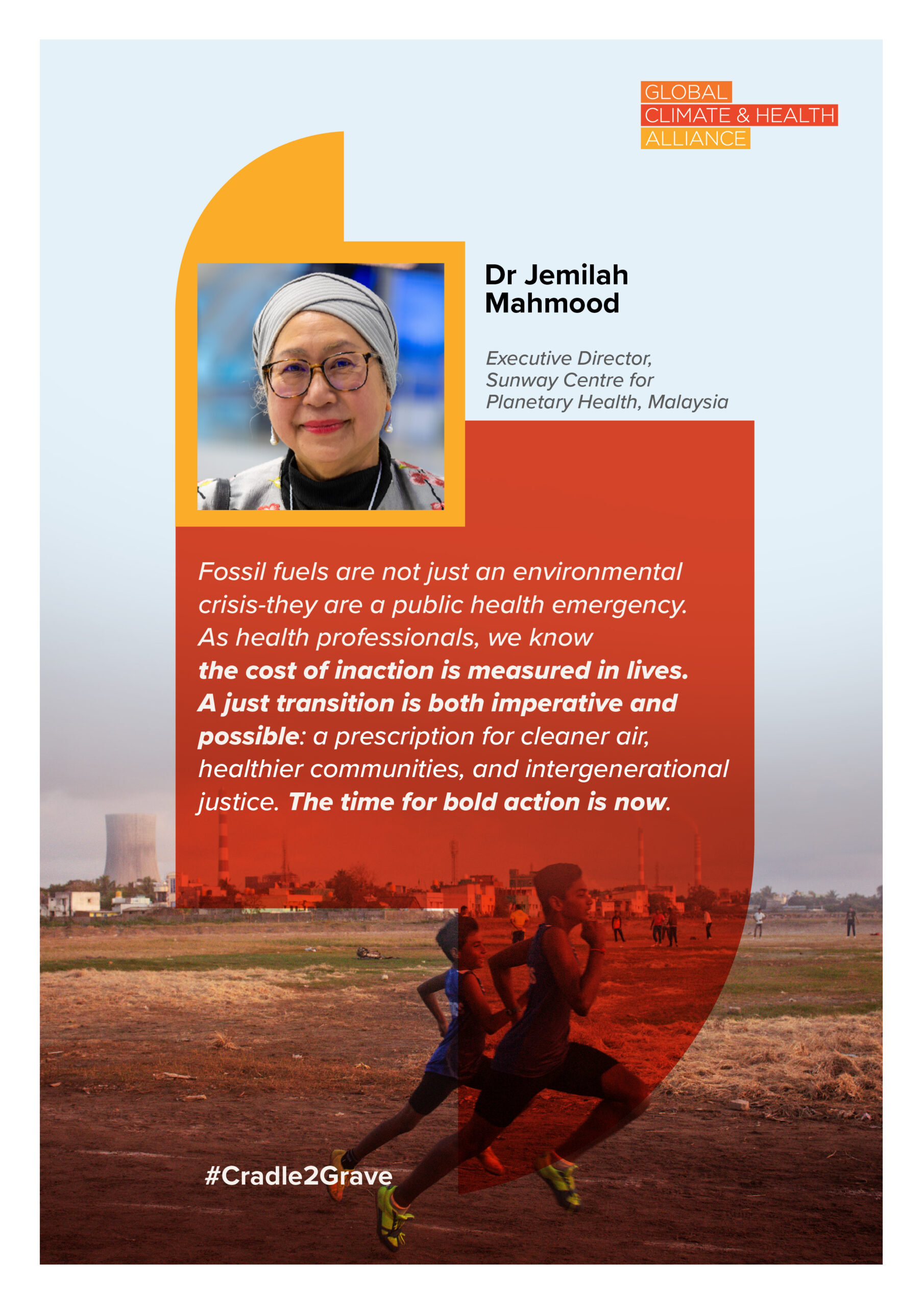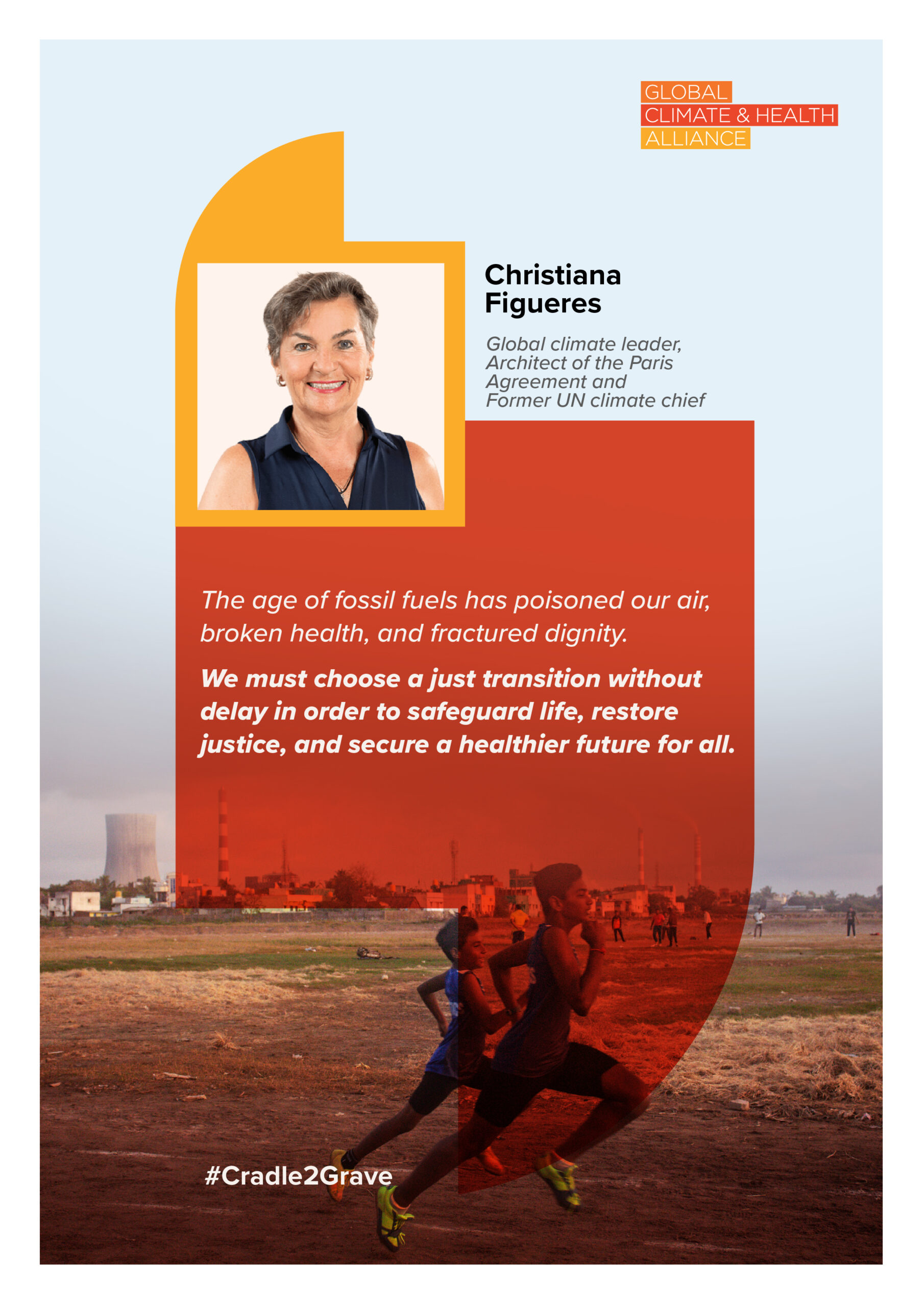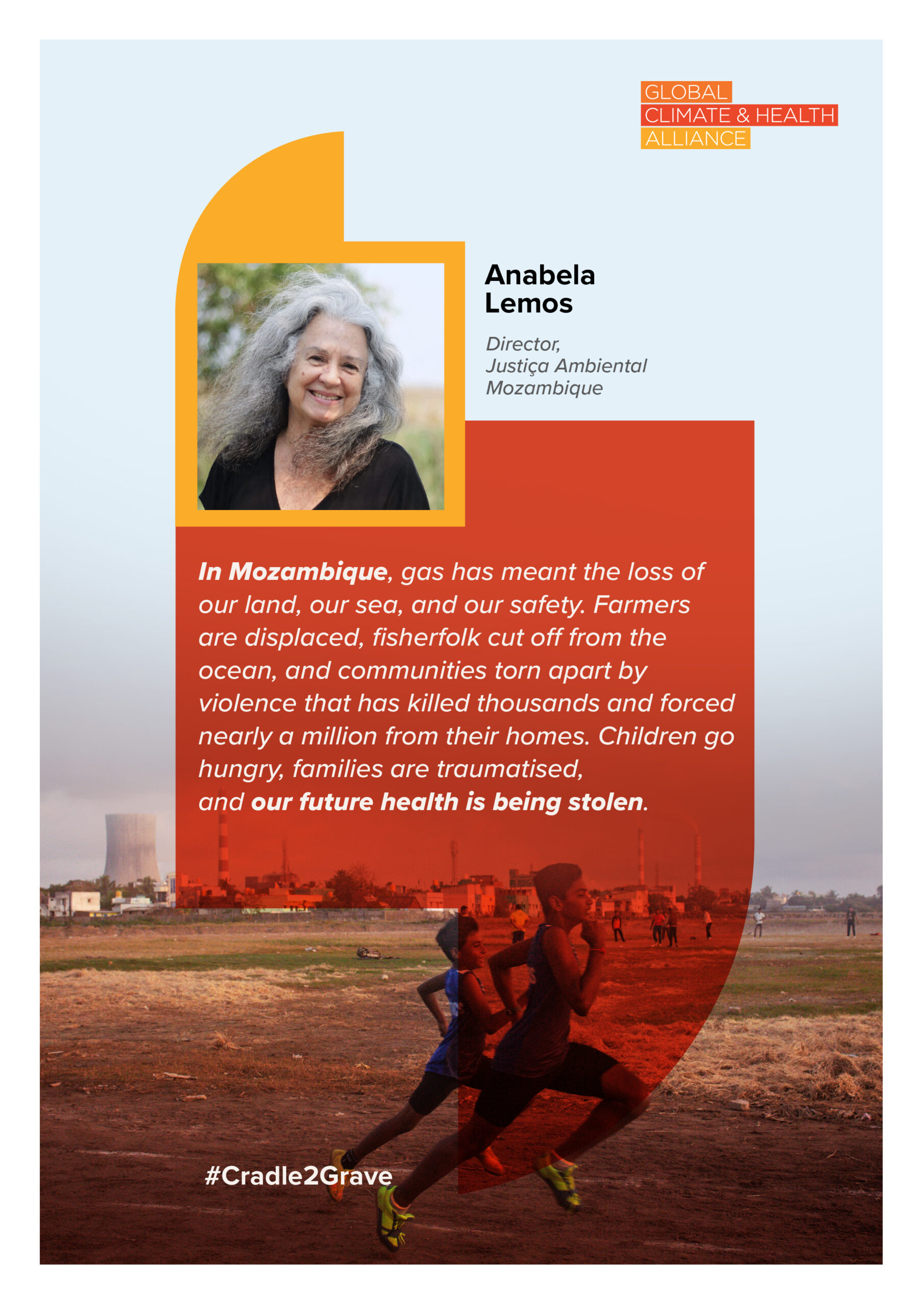
Most discussions about fossil fuels stop at the moment of combustion. Cradle to Grave takes a ground-breaking approach – mapping the entire fossil fuel lifecycle and exposing the health harms at every stage, from extraction to abandoned sites.
Why this, why now?
Global fossil CO₂ emissions hit a record high in 2024, rising yet again despite urgent warnings. While most debates focus narrowly on emissions, Cradle to Grave shines a light on the hidden health toll of fossil fuels, tracing the toxins released at every stage of production and the lifelong impacts on human bodies and communities.
This flagship report takes a novel approach: it maps the entire fossil fuel lifecycle, examines effects across every stage of human life and every system of the body, and pairs global scientific evidence with case studies and personal testimonies to show how fossil fuels deepen inequity. Peer-reviewed by 15 experts across medicine, public health, toxicology, law, and climate policy, it provides the clearest picture yet of why fossil fuels are not just an environmental threat, but a public health emergency.
The report investigates
-
What pollutants are produced at each stage of fossil fuel extraction, refining, transport, combustion, and waste?
-
When and how is the human body most vulnerable to these exposures?
-
How do risks compound across a lifetime—and which communities face the greatest burden
Watch Media Briefing
Key Findings & Recommendations
Fossil fuels harm health at every stage of their lifecycle—not just when they are burned.
Key findings:
- Fossil fuels negatively impact health at every stage of their life cycle – from extraction and refining, through transport and combustion, to the legacy of abandoned sites
-
Fossil fuel pollution affects every stage of life, from fetal development to old age. Harms include low birth weight, asthma, cancers, heart disease, dementia, and premature death.
- Toxins from fossil fuels can harm every part of our body – including our immune system, reproductive system, brain and nervous system, heart, lungs, kidneys, blood and bone marrow.
- Chemicals like lead, mercury, and PFAS (“forever chemicals”) persist in soil, water, and the food chain, intensifying with each exposure (biomagnification)
- Fossil fuel harms impact us all. Communities already facing disadvantage, including Indigenous peoples, racial minorities, and low-income groups, bear the heaviest burden, often in “sacrifice zones” near polluting infrastructure.
- Beyond direct health harms, fossil fuel operations drive displacement, inequality, and mental health crises.
- Global subsidies continue to prop up the industry, while societies absorb the health and environmental costs. The way forward:
A rapid, just transition to clean, renewable energy offers immense health opportunities.
-
Clean solutions already work: Renewables, zero-emission transport, and regenerative farming are affordable, scalable, and delivering healthier air, stronger energy systems, and restored landscapes.
-
Finance is available: Redirecting fossil fuel subsidies could rapidly accelerate the transition.
-
Make polluters pay: Ending hidden fossil fuel subsidies and charging industry for health and environmental damage would unlock vast funds for health, education, and development.
The health sector itself has a vital role to play by leading by example and speaking out.
Download
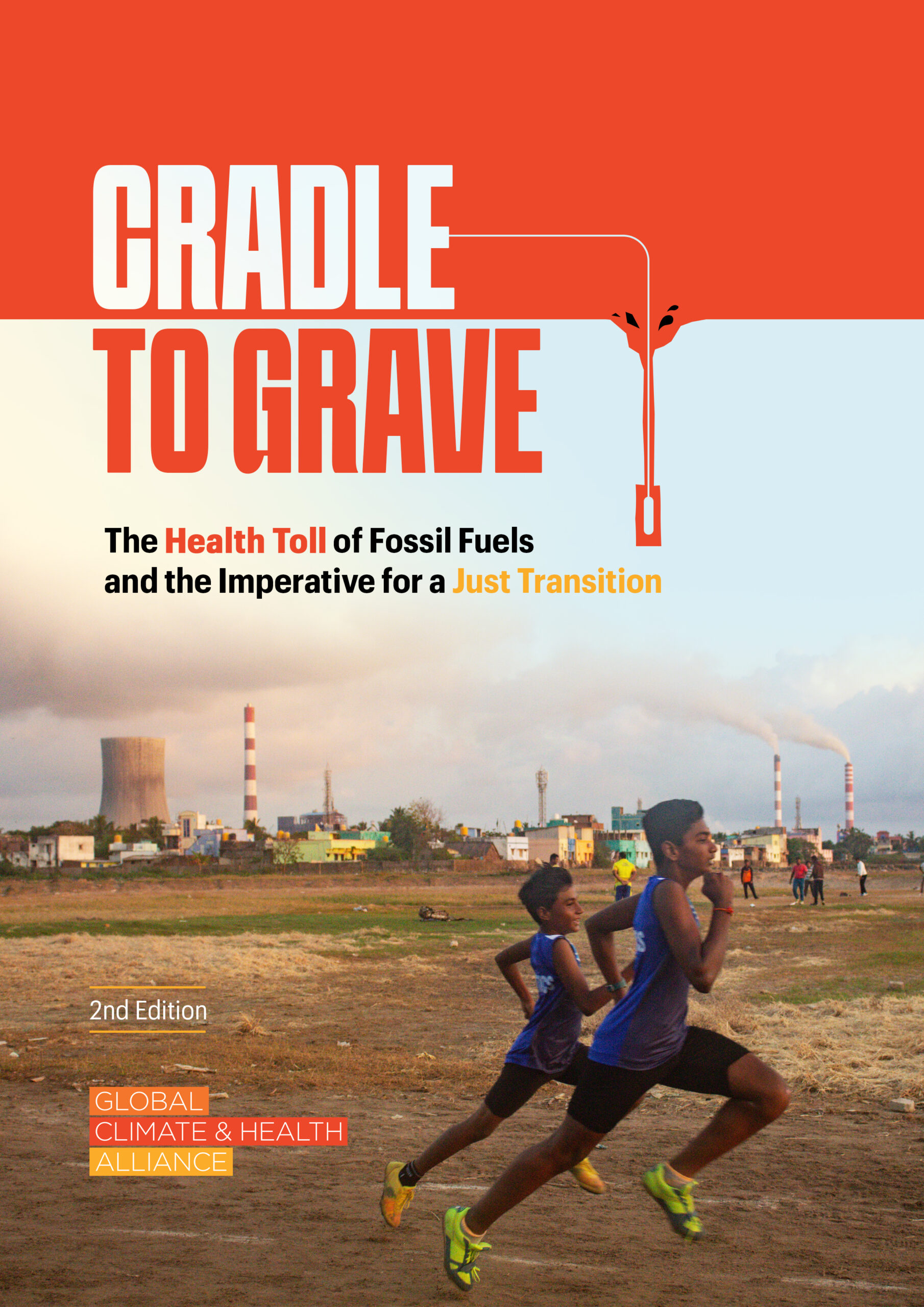
In English
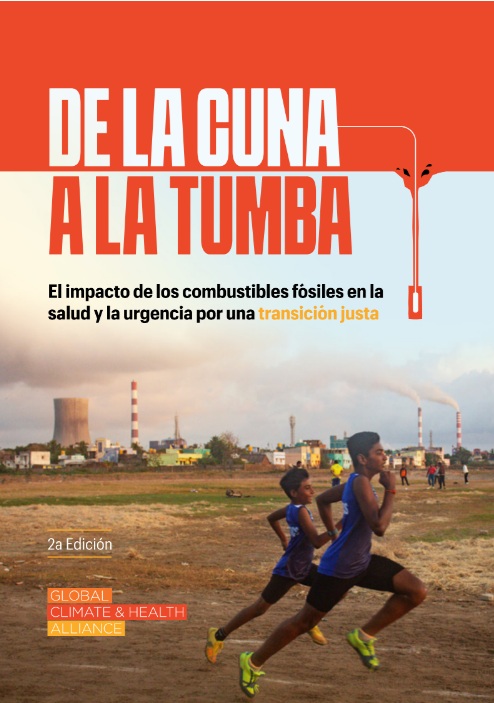
En español
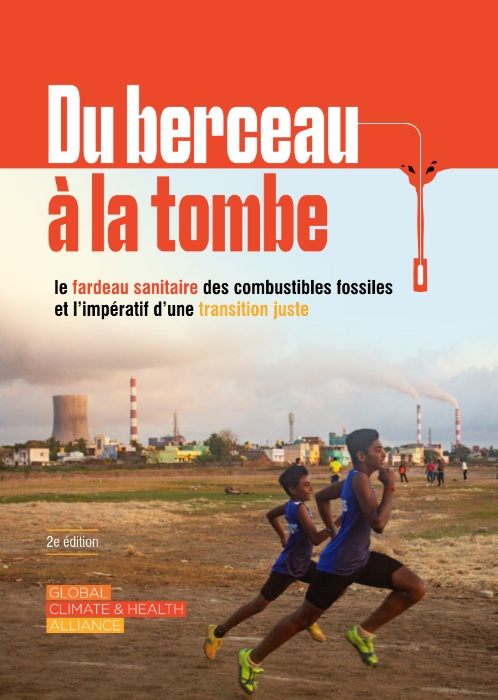
En français
